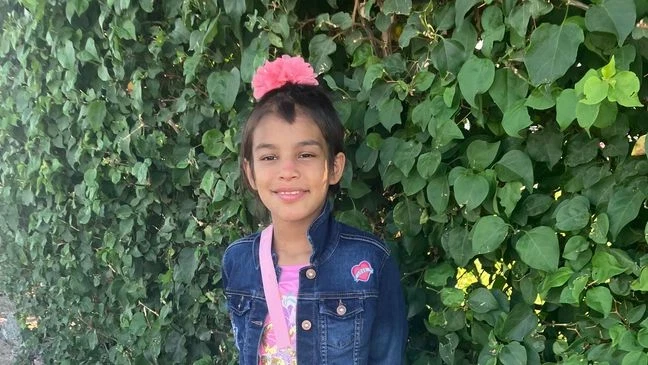When the System Fails: The Story of Genesis Ariah Mata
- Antoinette Okono

- Sep 29, 2025
- 4 min read
Disclaimer: This blog post is for educational and awareness purposes only. It is intended to shed light on systemic issues within child protective services by discussing a publicly known case. The information presented here is based on publicly available sources and is not meant to assign blame to any individual beyond those already held legally accountable. This post does not constitute legal advice, medical advice, or professional social work guidance. Readers are encouraged to conduct their own research and consult qualified professionals for support or further information. The views expressed are those of the author and do not reflect the opinions of any government agency or organization.
If you suspect a child is being abused or neglected, please contact your local authorities or the National Child Abuse Hotline at 1-800-422-4453.
Let us have a 1-minute moment of silence for Genesis Mata.
Author's Note: Nothing breaks my heart more than knowing children are hurt. What's even more devastating is reading about the horrific abuse of sweet Genesis. How could this have been prevented by ordinary people? CPS has their place, but what about us? We must tell this story even though it crushes my spirit. Rest in peace, baby girl.
“She loved anything that sparkled.” That’s how relatives remember Genesis Ariah Mata, an 8-year-old girl whose life ended in unthinkable tragedy this summer.
On August 2, 2025, Genesis was found lifeless in a Bakersfield, California, hotel bathtub. Her body bore the marks of prolonged abuse: blisters, burns, bruises, crushed fingernails. Her father, Ray Mata Jr., and stepmother, Graciela Bustamonte, now face charges of first-degree murder, torture, and child cruelty.
The case has shocked the nation—not only because of its brutality but because the warning signs were there all along. Family members say California’s Child Protective Services (CPS) had been contacted more than 20 times. Yet Genesis was left in harm’s way.

Photo: Genesis Mata
A Bright Spirit
Before the headlines, before the horror, Genesis was simply a little girl. She had a laugh that filled a room. She chased after sparkly toys, glitter, and anything that shimmered. She played, danced, and dreamed.
Those who knew her speak of joy—of a child who wanted nothing more than to live fully.
But in the shadows of her home life, the sparkle dimmed. Abuse escalated. And even as reports piled up, systems faltered.
Inside the Offender Profile
Criminologists say cases like Genesis’s are rarely isolated. Abuse of this severity follows patterns—patterns communities must learn to recognize.
The Alleged Caregivers: Reports say both father and stepmother used physical violence—scalding hot water, beatings, whipping—to “discipline.”
Behavioral Traits: Manipulation, secrecy, and rationalization are common. In this case, Bustamonte allegedly admitted pouring boiling water as punishment to force “better behavior.”
Escalation: Abuse doesn’t usually stay static. Injuries deepen, frequency increases, secrecy grows.
Systemic Failures: When more than a dozen calls to CPS go unanswered, the system itself becomes part of the tragedy.
Warning Signs We Can’t Ignore
Child abuse hides in plain sight. Teachers, neighbors, relatives—even strangers—may see glimpses. Here are red flags experts emphasize:
Unexplained injuries or injuries with flimsy explanations.
Frequent harm: repeated bruises, burns, or broken bones.
Behavioral changes: withdrawal, fear of caregivers, anxiety.
Isolation: caregivers restricting contact with outsiders.
Inconsistent stories from adults about what “really happened.”
When signs stack up, silence is dangerous.
The Hardest Step: Reporting
Too many people hesitate—afraid of being wrong, of overstepping, of creating conflict. But reporting is not accusation; it’s protection.
Call 911 if a child is in immediate danger.
Contact CPS or your local child welfare agency.
Use national hotlines like Childhelp’s 1-800-422-4453.
Tell schools, doctors, or clergy who are mandated reporters.
And remember: you can report anonymously.
Persistence Saves Lives
What if you report, and nothing happens? Genesis’s case shows us the heartbreaking consequences of stopping there.
Document what you see and when.
Follow up with the agency you contacted. Ask: What steps were taken?
Escalate if necessary—request supervisors, contact oversight offices, involve advocacy groups.
Build coalitions: multiple reports from different voices carry more weight.
“Until something happens” has to be our mantra. Offenders rely on apathy, and overwhelmed systems can miss urgent danger. Persistence is not overreacting; it’s lifesaving.
What Genesis Teaches Us
Genesis Ariah Mata should be alive today. She should be playing with glitter, laughing with friends, daydreaming about her future.
Instead, she is remembered as another child lost in a cycle of violence and systemic neglect.
Her story is devastating—but it must also be galvanizing. Communities must learn the signs, speak up, and never stop pressing until children are safe.
If you suspect a child is being abused or neglected, call the National Child Abuse Hotline at 1-800-4-A-CHILD (1-800-422-4453). Your call could save a life.
Additional Information:
Our team of writers is very small, and we need assistance. Therefore, this blog was thoughtfully written with the assistance of ChatGPT, an AI tool designed to help communicate sensitive topics with accuracy and care. By using ChatGPT, we aim to provide a clear and compassionate perspective on complex issues, drawing from trusted sources and evidence-based insights.




Comments